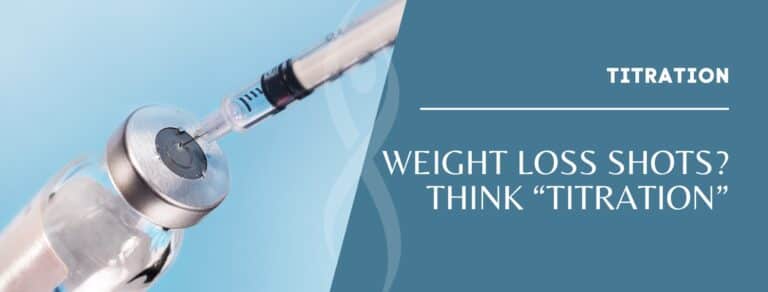AGING; IT’S NO JOKE
And yet, to most people, it is.
“The secret of staying young is to find an age you really like and stick with it”-Charlie brown
“The secret to staying young is to lie about your age”-Lucille Ball
With late-night TV comedy shows where supposedly clueless older people are the butt of jokes and with ads for anti-aging creams equating youth with beauty and wrinkles with decay, harsh and unflattering images shape assumptions about aging. Then there is a thesaurus of unseemly descriptions of aging: “archaic, obsolete, elderly, geriatric, senior, senior citizen, geezer, over-the-hill, dated, old timer” …and of course, just plain “old”.
BATTLE OF THE AGES
Age is a number, and everyone has a different opinion of what those numbers mean. What’s considered “youth”? And who gets to decide when you’re officially old? What about midlife—when are you officially middle age? According to a 2021 Harris Poll conducted exclusively for Fast Company, the period between youth and old age is in flux. The study found that younger millennials consider the median middle age to be between 35 and 50 years old. That’s a contrast to Generation X’s perception of middle age — 45 to 55 years old — and baby boomers, who consider middle age to be 45 to 60 years old. But ask some people, and they’ll say middle age is 30 and old age is 50. Which would make any Boomer cringe. You can do the math a million ways, but the ways it affects your entire body add up, too.
EVERYTHING CHANGES
Is “you’re only as old as you feel” really just a cliché?
Aging affects every part of your body– your teeth, your heart, your sexuality, bones, digestive system, memory and thinking skills, bladder and urinary tract, eyes, and even ears. But let’s take a look at what happens to your collagen, the decline in muscle mass, and unexplained weight gain.
COLLAGEN STOPS KICKING IN
Research has shown that collagen production drops one percent every year after the age of 20. So by the time you’re 50 years old, you’re producing only 70 percent of the collagen you did when you were in your late teens. This is bad news for your skin. With less collagen, your skin cells aren’t as firm and structured as when you were younger. This can lead to things like sagging skin, dark under-eye circles, and other eye wrinkles, like crow’s feet. The internal organs are also affected. This is most noticeable in the musculoskeletal system, particularly the joints. Collagen is heavily involved in joint health, meaning that declining levels can make joints stiffer, more painful, and more vulnerable to injury. Muscles are also affected, with diminished strength and slower recovery after exercise being commonly reported.
LEAN MUSCLE MASS STOPS BEING SO LEAN
The pituitary gland’s production of growth hormone (GH) decreases approximately 3–8% per decade after the age of 30 and this rate of decline is even higher after the age of 60. With less growth hormone, it’s harder for your body to build and maintain muscle mass, which in turn also impacts your metabolism and how many calories you burn. It’s a snowball effect. You start accumulating more fat, and have less lean body mass; you convert less food into energy, and that just keeps adding up over time.
WAIT, WHAT’S WITH THE WEIGHT GAIN?
As we get older, we gain an average of one to two pounds per year. This may not seem like a lot, but over time, it can accumulate and lead to significant weight gain or even obesity. For women, menopause, which tends to happen between ages 45 and 55, causes a significant drop in estrogen that encourages extra pounds to settle around the belly. Men, on the other hand, experience a significant drop in testosterone as they age. It begins to decline gradually around age 40 at a rate of about 1 to 2 percent per year. Which can also add up. Testosterone is responsible for, among other things, regulating fat distribution and muscle strength and mass. In other words, lower testosterone can also make the body less effective at burning calories. Which can likely make it look less than enviable at the gym.
ANTI-AGING PEPTIDE THERAPY; BRING IN THE BIG GUNS
Peptides are short chains of amino acids that play an important role in many biological processes including improving cell signaling in the body. This communication potentially enhances the entire body’s functioning by binding to receptors on the cell surface and signaling optimal messages for health improvement such as the ability to slow down the aging process and prevent age-related diseases. One powerful anti-aging peptide is Sermorelin. Human Growth Hormones (HGH) play a significant role in the way the body operates. The older we get, the less our bodies tend to produce.
That’s where anti-aging peptide therapy comes in. So what is Sermorelin? It can help increase the production and release of growth hormones in a natural, sustainable way. Sermorelin is molecularly similar to GHRH (a growth hormone releasing hormone) and binds to the GHRH receptor. It also has cross-over effects in the anti-aging process, with some of the benefits are the same:
Sermorelin:
- Boost energy, strength, and stamina
- Increase lean body mass
- Generate more muscle cells which make building muscle easier
- Higher levels of metabolism to help with weight loss
- Break down body fat and fatty acids
- Improve heart function
- Strengthen bone density
- Enhance sleep
- Decrease inflammation
- Accelerate recovery and wound healing
- Boost hair growth
- Boost sex drive and performance
ANTI-AGING; IT’S NOT JUST WHAT YOU DO, BUT WHO HELPS YOU DO IT.
At Thrive Health Solutions, when it comes to anti-aging, they have a simple mantra:
Feel younger. Look younger. Think younger. Act younger.
And yes, it’s all possible with Sermorelin therapy. Using anti-aging peptides is an exciting, cutting-edge therapy. With Thrive’s extensive experience in anti-aging, they have helped patients of all ages stay young beyond how many candles grace their birthday cakes. Thrive offers this combined powerful peptide therapy in injections.
It might all seem a bit overwhelming, but the skilled anti-aging experts at Thrive will explain it all in terms you can easily understand. After a detailed medical history and thorough exam, they’ll work closely with you to determine what will work best for you. Whatever your goals will be theirs. Staying young is your choice. Thrive is there to make your choice easier. Call Thrive Health Solutions for an appointment now.




